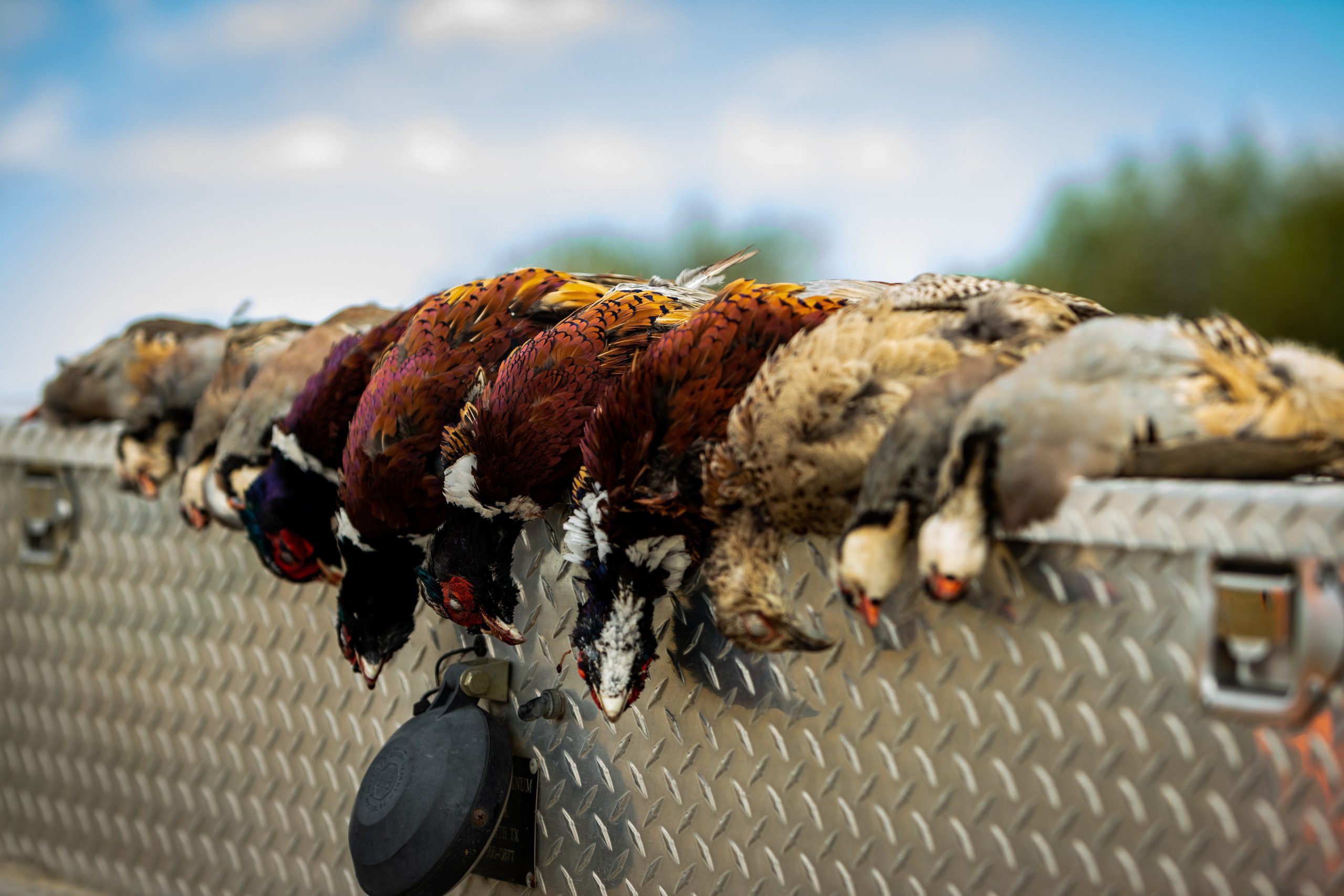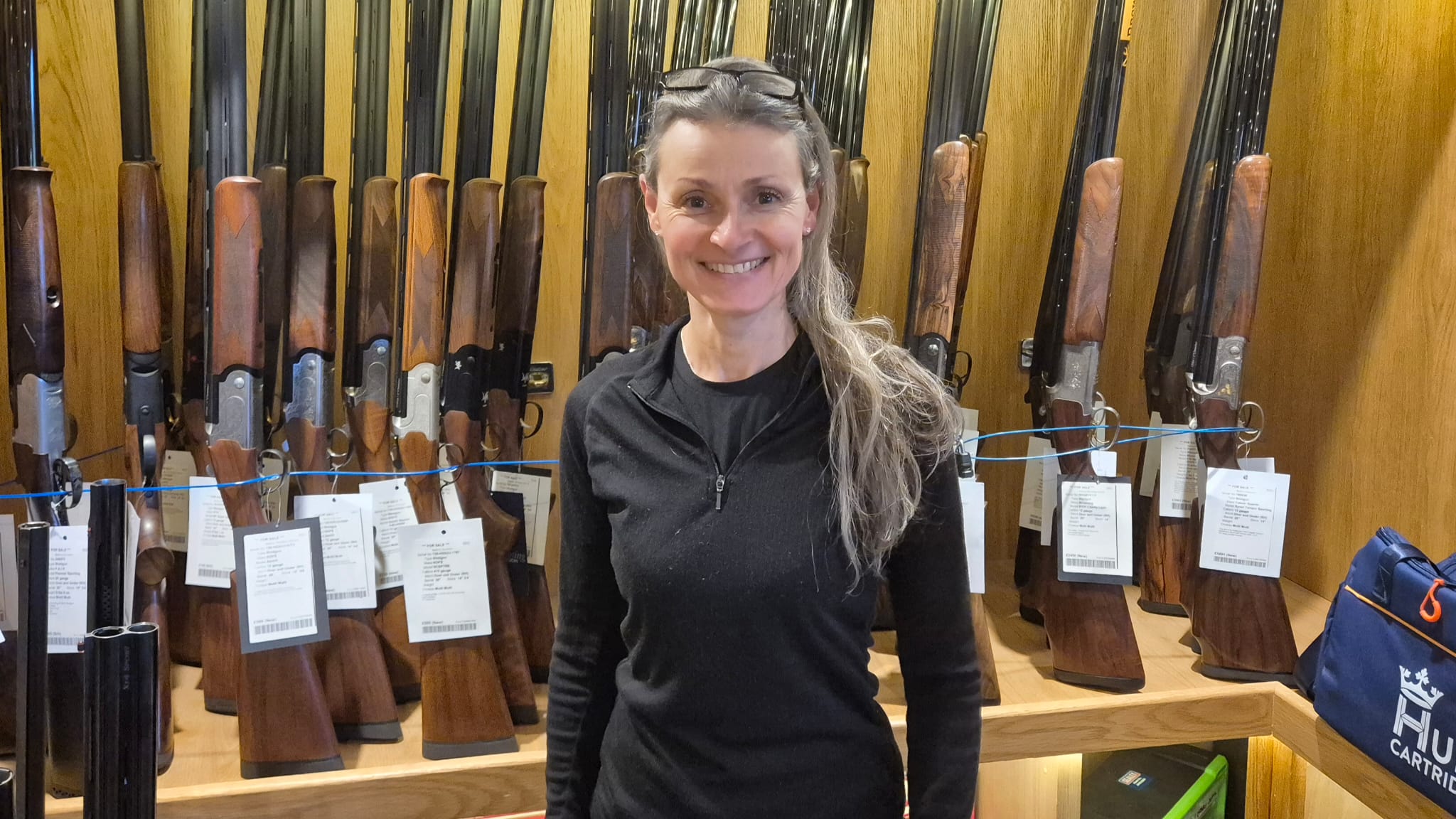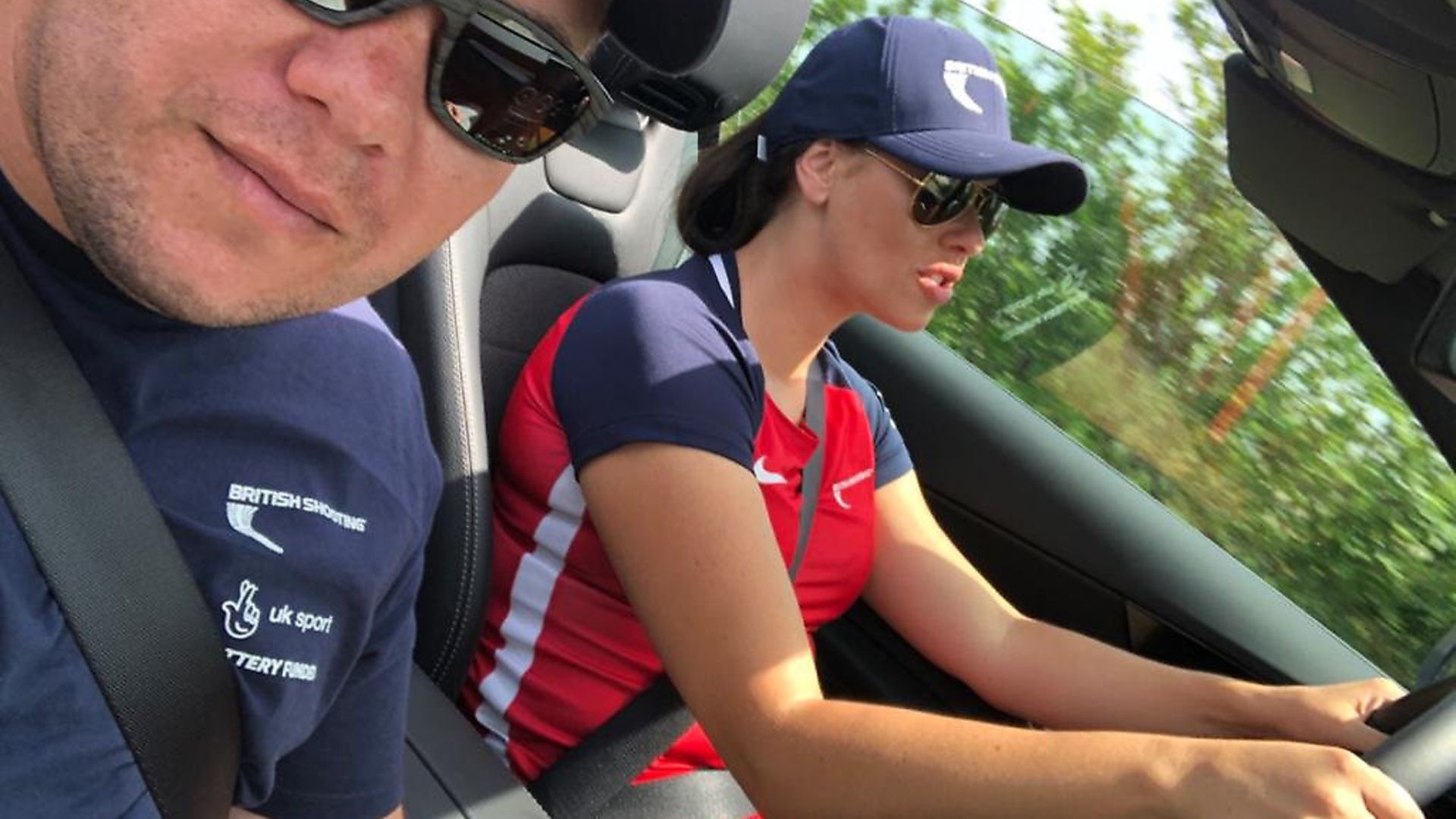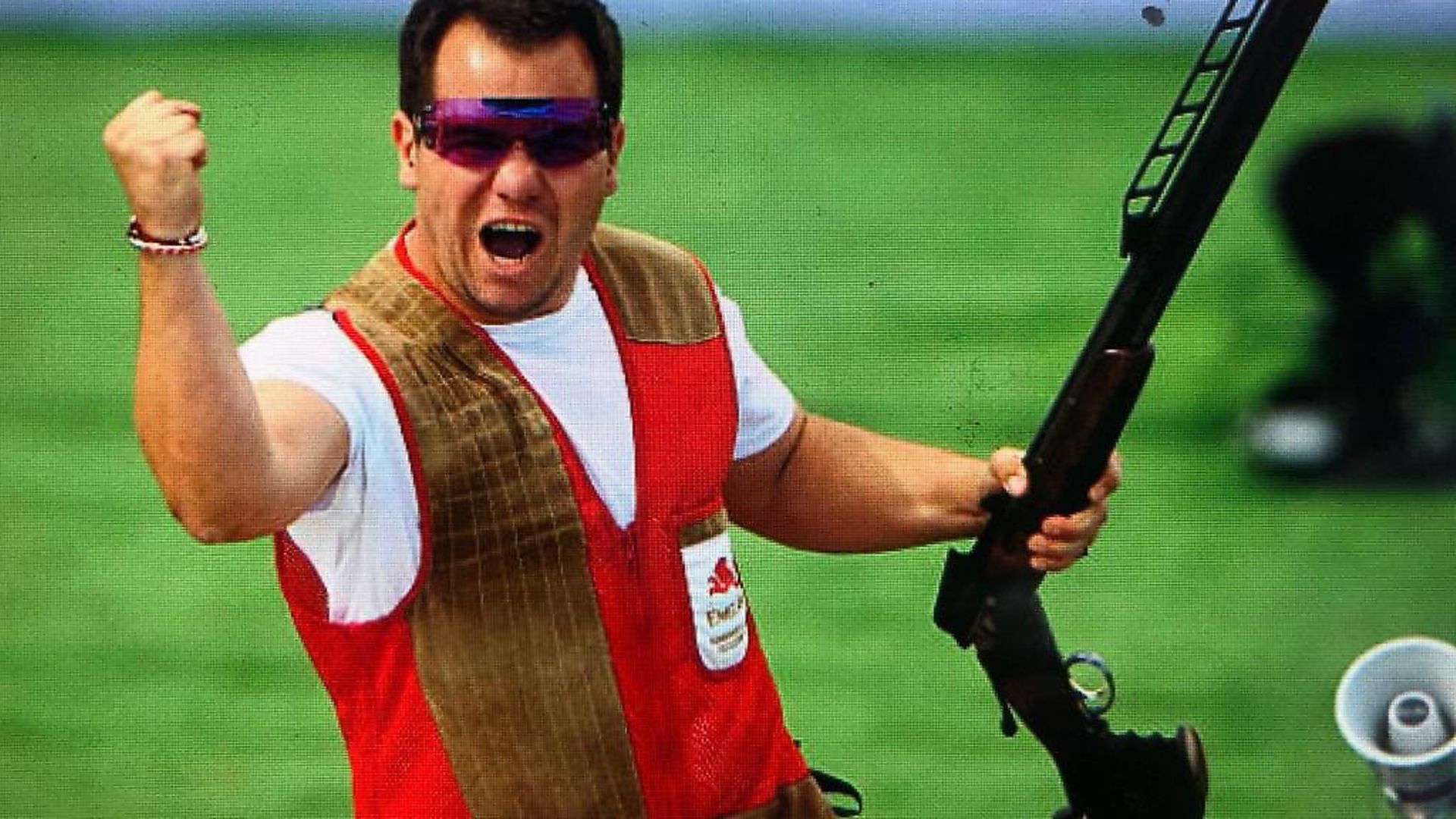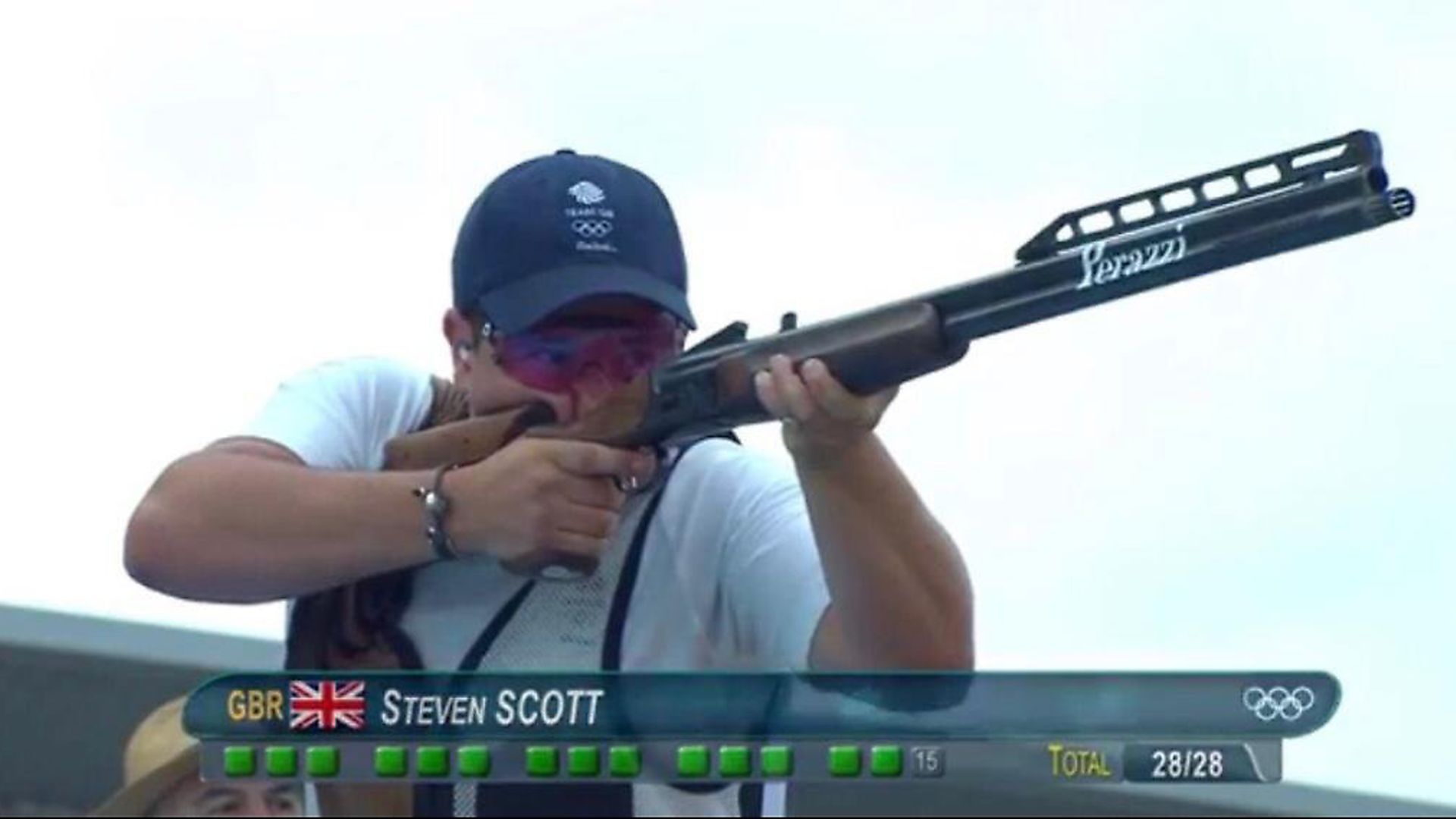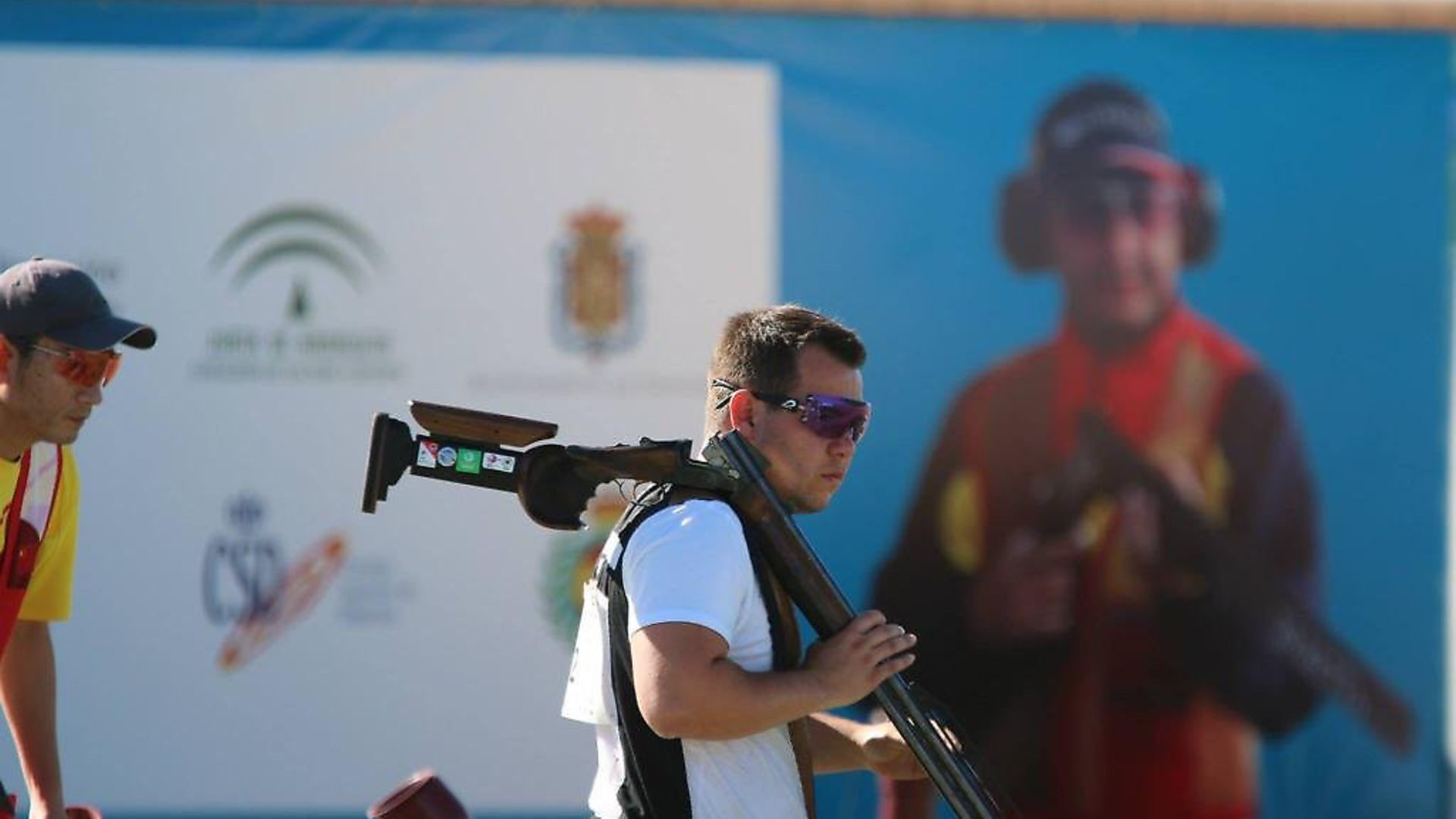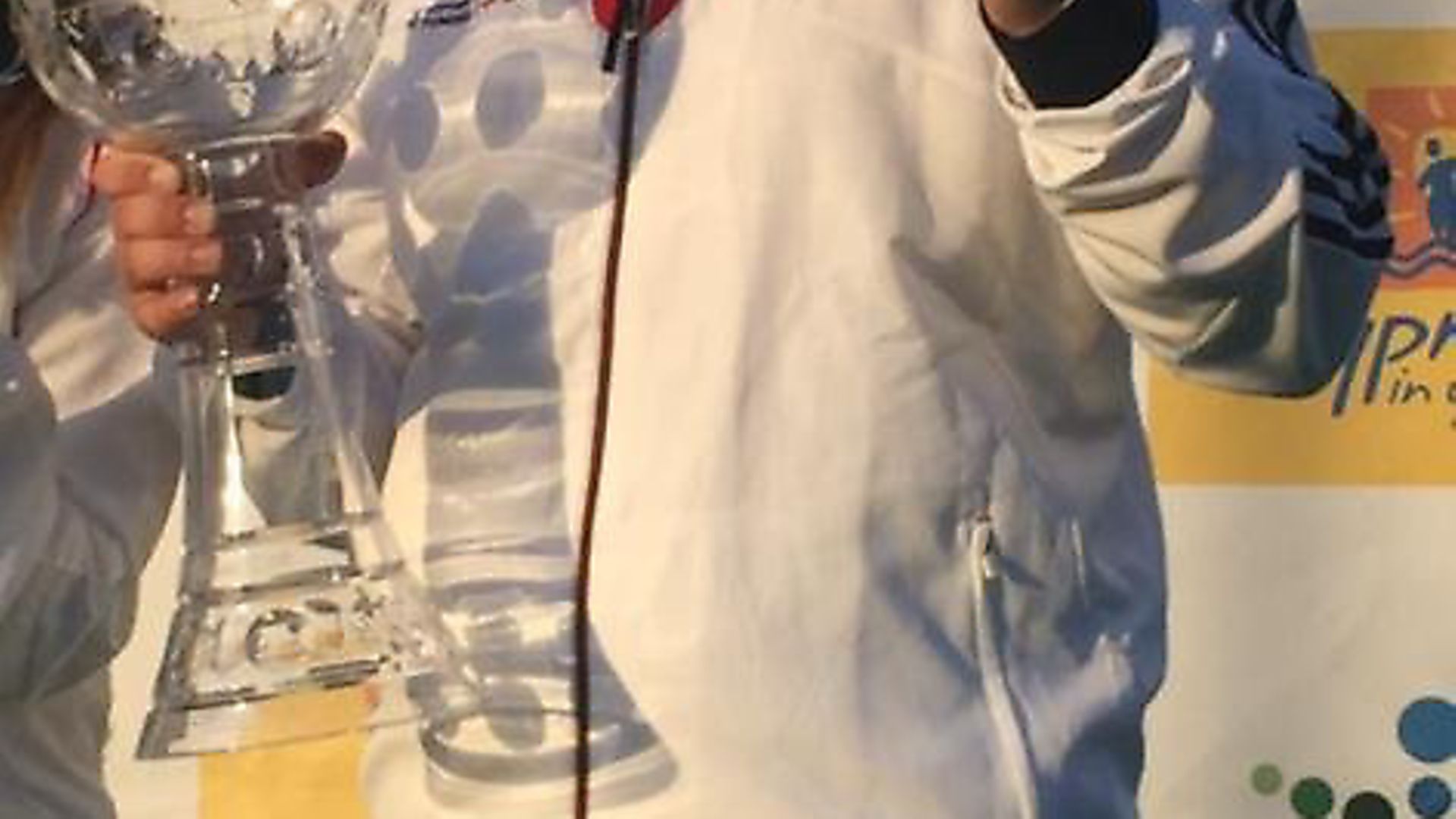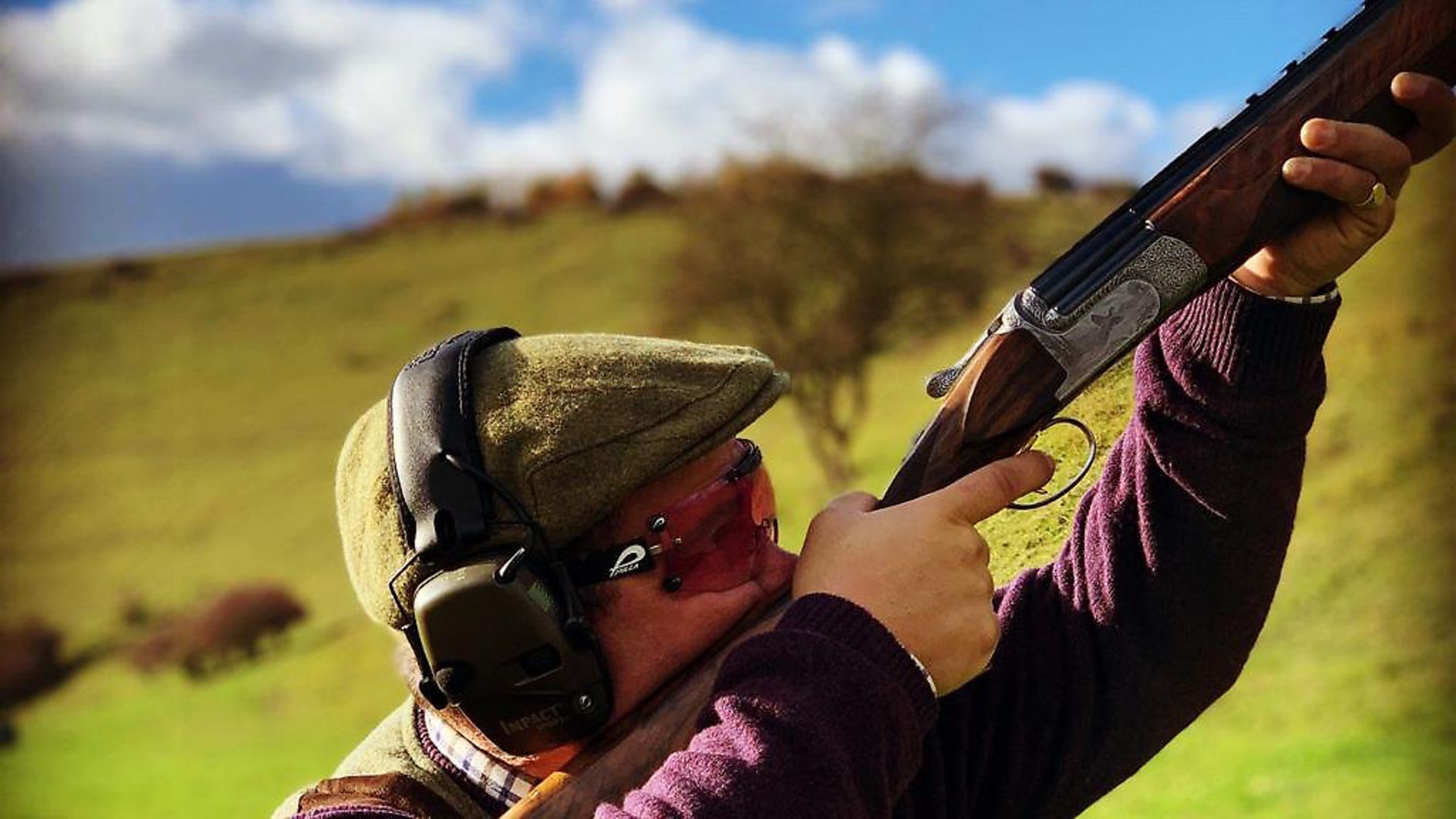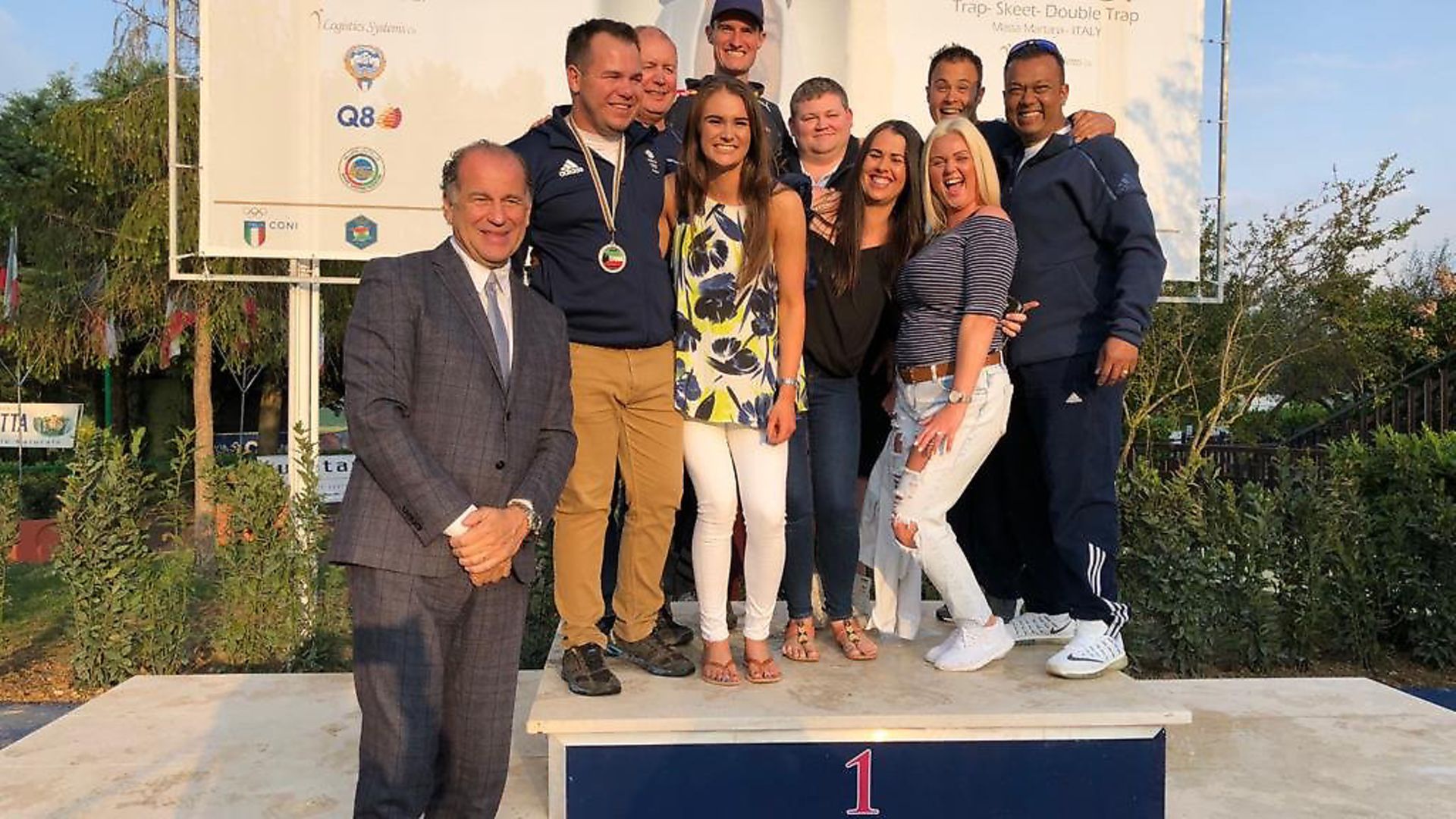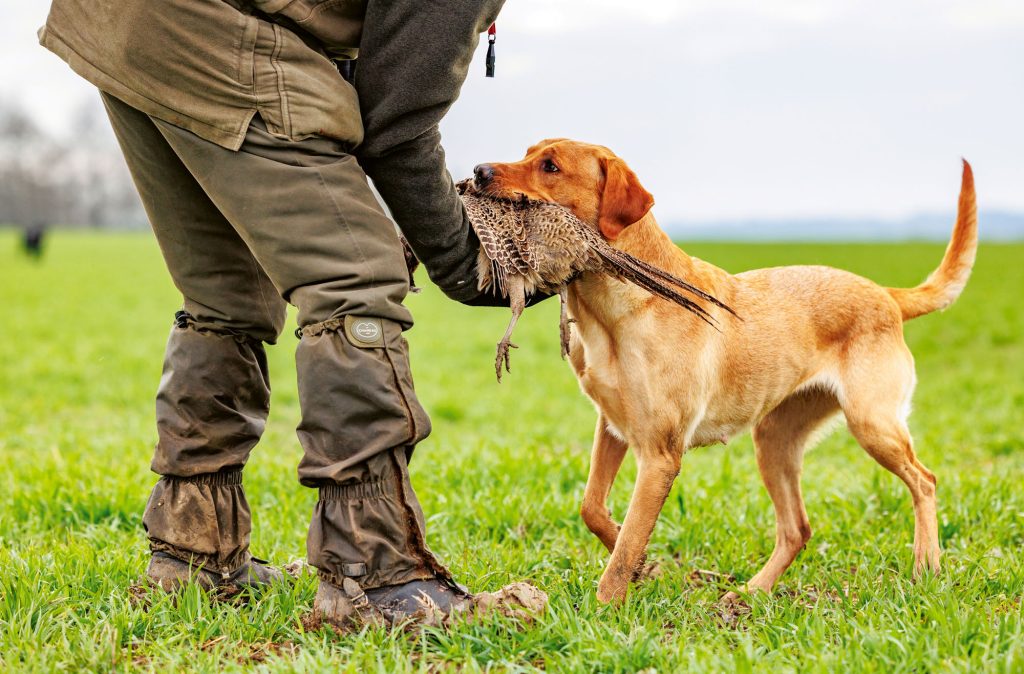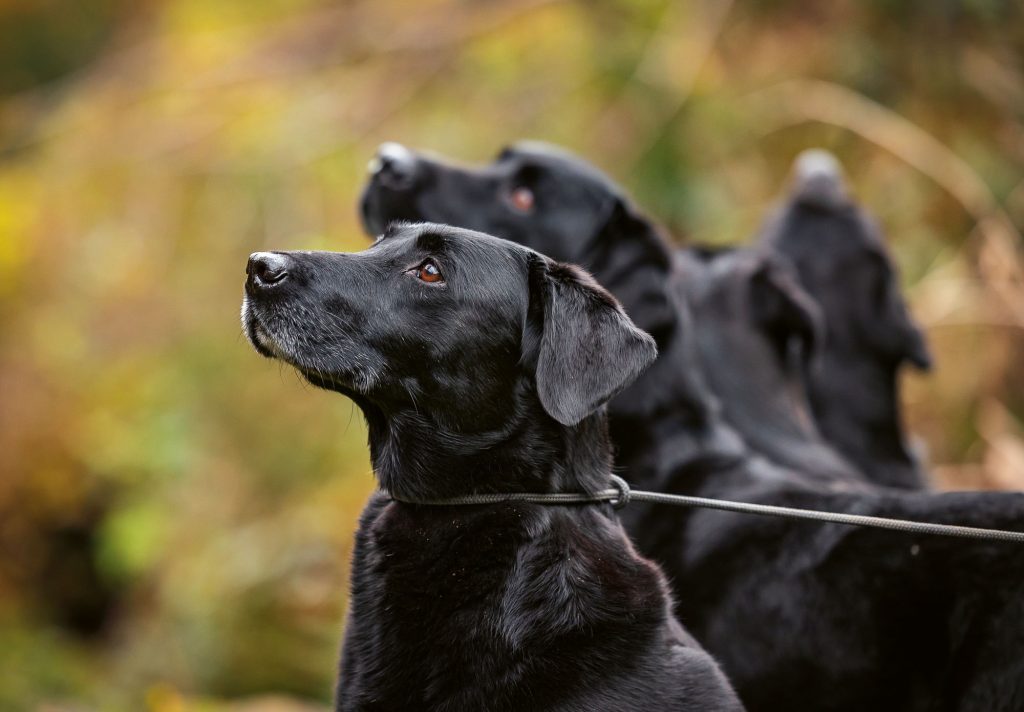Interview: Olympic medallist Steve Scott
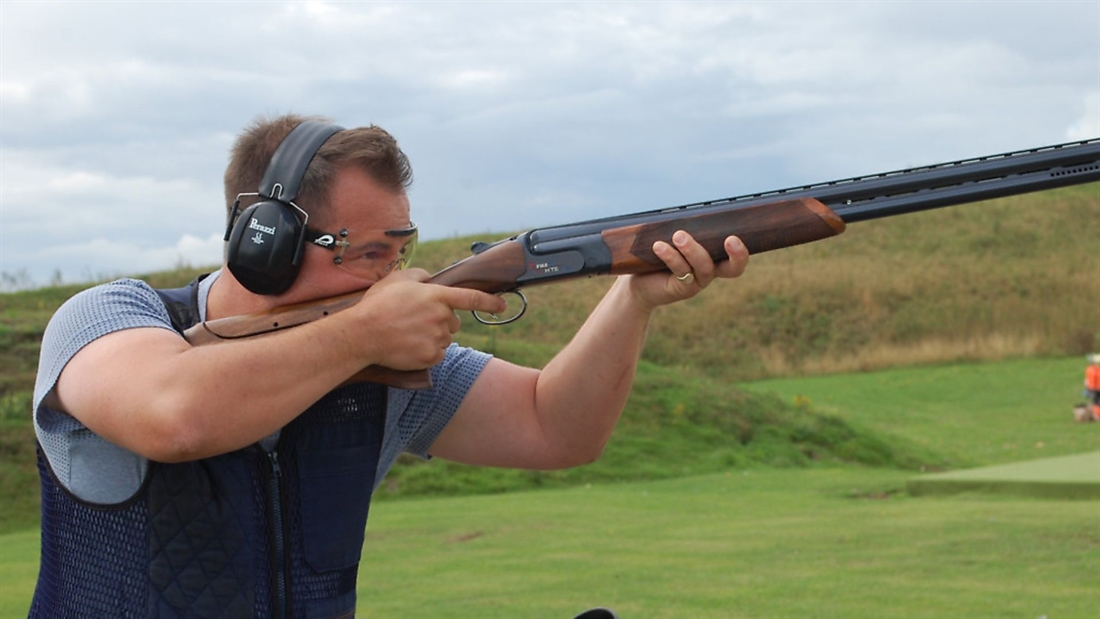
Clay Shooter editor Emily Damment meets Olympic Bronze medallist Steve Scott to chat about life since Rio, his transition to Olympic Trap, and absolutely everything in between!
There are weeks when I am fairly convinced that, come Friday, I will be discovered sitting wild-eyed in a corner, trying to chew my own foot off and muttering incoherently about copy deadlines, semi-colons and payment spreadsheets. Luckily, these weeks are punctuated by days that end with a swift prayer of gratitude to the gods of employment that I am fortunate enough to work as a shooting journalist. The day I went to interview Olympic bronze medallist Steve Scott was one such day (the ‘thank god I’m a journalist’ type, not the ‘crazed foot gnawing’ type!).
The pre-planned hour-long interview slot turned into a three-hour chin wag, followed by a long-range rifle shooting session, which was topped off with a steaming hot pie and more hours of gossip in a cosy pub while the rain, which had kindly held off for our photoshoot, unleashed itself on the slate roof. Now, as far as a day of work goes, I’m sure you’ll agree that’s not too shabby!
Despite the many utterly hilarious deviations from the pre-planned list of questions, we did eventually get around to discussing the main topic of the article – what is life like for the Hampshire-based superstar four years on from winning bronze in Double Trap at the 2016 Rio Olympics? What did it take to come home with that medal, and does the feeling of being an Olympian ever get old?
“It never gets old because I remind quite a lot of people about it very regularly,” Steve said, laughing into his coffee. “With social media, everything is connected and you end up making a lot of new friends, who then find out what you’ve done, who you are and what you’ve achieved. It’s nice because you get quite a lot of refreshing memories by meeting new people who ask about it.
“I’m very fortunate to have a lot of good memories from the last 17 years, and sometimes you forget things until someone asks you about it… then suddenly you remember and think ‘oh yeah, I did do that’!”
Shooting in front of 7 million viewers
Having never got the chance to interview Steve at the time, I wanted to hear from his perspective what it was actually like to shoot and ultimately win a medal in an Olympic environment. I couldn’t imagine feeling anything other than sheer terror and the immense pressure of your country’s hopes and dreams resting on your shoulders – how would that affect your gun mount!?
“I was quite lucky in one sense and unlucky in another. I had a slight relationship issue while I was out there, and I think it took the pressure of competing off me,” he explained. “I competed in Bejing for my first Olympics previously, but being in Rio and being in that amazing but crazy environment didn’t really hit me because my mind was occupied by the relationship problem I was having.
“That completely obsessive focus on winning was getting side-tracked slightly, which kind of eased some of the nerves. Even when it came to the shoot-off between me, James Willett and Tim Kneale, and me and Tim got through to shoot-off for bronze, I wasn’t feeling the pressure.
“It was a lot like shooting off against Matt French at the Commonwealth Games; because I knew that either me or a team mate was going to win the medal, I was happy with that. Either which way, it was going to GB. But in that situation, I can relax because I’m always routing for my teammates as much as I am myself. You can see that if you watch it on YouTube – immediately after I won, I wasn’t like ‘Ha! In your face!’ because I really felt for Tim. I turned to him and gave him a big hug, because if you compete for Team GB and especially at Olympic level, you know how much time, effort, dedication and sacrifice goes into winning medals. What’s the saying… be humble in victory and gracious in defeat.
“Coming back to the Olympics, even though I was shooting against Tim, one of us had to win it in the end. I managed to do that without missing a single target, and I would definitely put that down to my brain being slightly switched off and the complete lack of nerves I was feeling. If I was thinking, ‘Oh my god there’s an Olympic medal resting on this’, then everything would have been focused on that and the outcome might have been different.”
With almost 7 million people watching the shooting events on TV, in addition to the thousands of spectators present on the day, it’s a complete mystery to me how anyone could hold their nerve. Was there any point at which the enormity of what Steve was about to achieve dawned on him?
“I would say on the last pair, I sort of went ‘oh… I only need one’,” he remembered. “I started thinking all these crazy thoughts like ‘Do I double barrel one’… and then I just thought back to what my coach Sheik Ahmed told me, which is to focus on the new target, the new pair and nothing else – just forget everything that has come before. I remember hitting the first one and I sort of gasped in my mind, and then it felt like it took an eternity to shoot the second one, but, in reality, it probably only took me an extra second between targets from my usual time… and as I hit it, I just thought YES!
“I can be a bit cocky every now and again, and because I knew I’d hit the first one I was thinking ‘Do I hit the second one on the drop or something?’. All these completely stupid thoughts come into your head, and no matter what happens, you can’t control them. But I managed to stay focused and hit the last pair. Paul Hughes, my psychologist and good friend, was worth his weight in gold; he helped me through one of the toughest times in my shooting career at the Games and for that I will forever be in his debt.
“When I hit the second target, I turned around, looked at my family and best mate connor Gorsuch and saw them standing there cheering and clapping. My sister Charley was a little bit excited for me and I swear I saw a tear in my dad’s eye… it was just an awesome experience. I was a little bit tipsy for the next two weeks and didn’t get much sleep, I think a total of 48 hours in a fortnight! Not bad for an amateur. I came home on the plane and ended up sitting with the whole girls’ hockey team!”
The winning formula
Steve continued: “One of the strangest things about it all was that when I first met coach Ahmed, he said to me, ‘Steve, next year, you might make one final. We’ll make some changes, and the following year, you’ll make more finals and win the quota. And after that, you’ll go on to make some more finals and you’ll win an Olympic medal’. For him to predict that, and then for it to actually play out exactly as he said it would, was just incredible – his immense knowledge and experience gave him that foresight.
“He’s amazing; he coached Pete Wilson and when he retired, I sort of said ‘Hey Pete, can I borrow your coach?’ He’s the loveliest guy you’ll meet. From the position Ahmed put me in, and of course through world-class funding and the support that provides, it makes you a lot more relaxed and confident.”
Although I’ve met Steve on several occasions since the big win, I didn’t know him beforehand, so I can’t comment on whether his easy-going confidence is a product of Olympic success, or whether it was part of the winning formula that helped him achieve it in the first place. I suspect it may be the latter.
In my experience of interviewing successful competition shooters, most have an air of something slightly different about them – quiet assuredness, perhaps? – which I theorize is something to do with that coveted, elusive ‘competitive edge’. I noticed it when I interviewed Matt Coward-Holley last month, Richard Faulds is famed for his coolness, and I bet you’ve never seen George Digweed in a flap on the course! The best way I can describe it is a kind of non-cocky confidence in themselves and their ability; a built-in immunity to the anxiety that can wreak havoc on us lesser mortals when we are required to perform under pressure.
Steve seems to go one step further in his utter chilled-ness and, unlike many top shots, will basically shoot anything and everything that he feels like shooting! From air rifles to centrefires, Sporting to Trap, Skeet, game and pigeons, he can and does do it all, and grew up shooting to the point that it is simply second nature to him. He does not yet seem to have lost that element of pure fun that got most of us shooting in the first place, and which I’d imagine can’t help but fade slightly when, like Steve, you become a full-time, fully-funded professional athlete, with all the associated expectations and pressure to perform. It was evident when we nipped across to his rifle range at Owl’s Lodge after the interview and messed around with some long-range targets, just for fun!
Adapting to change
Could it be this flexibility, natural adaptability and broad skill set that allowed him to switch so seamlessly from Double Trap to Olympic Trap when the former was dropped from the Olympics?
“I completely understood why they dropped it, to make it more gender equal. It was annoying, but that’s life and sometimes that’s the card you get dealt,” he said. “I love shooting and I love the Olympic circuit, and so I just thought well OK then, I’ll switch over to Olympic Trap.”
After only shooting two world cups, Steve is now ranked 11th in the world and the second highest Brit behind Matt Coward-Holley. “I’ve only effectively shot one international (World Cup) this year, and to go from 138 to 11th feels amazing, leap-frogging Olympic gold medalists in doing so!” Steve says.“The hardest thing about it was getting the gun right. I’m very thorough when it comes to gun fit. When I get my stock adjusted, I’m looking at half a mil off here, half a mil there… it probably took me about eight months to a year to get it right and now I’m finally happy with it.
“Whether it makes a difference mentally or physically, it’s the confidence it gives me to shoot better. When you’re aiming for the Olympics and you need to be the absolute best in the world, that’s the margin you’re looking at and that can make the difference. I am really enjoying Olympic Trap, which is the most important thing.
“One of the most enjoyable things about it for me has been the team atmosphere and the community that surrounds it. One of my best moments was when I won my first international medal in Olympic Trap, which was silver in Todi. I got to travel out with my best mate, Charlotte Hollins, along with Aaron Heading, Nathan Hales, Matt Coward-Holley, Georgina Roberts and Quaysoor Miah. For me to win that and take my first proper step into the international Trap shooting world, and to do it with all my friends there, felt very rewarding… although buying everyone dinner with the winnings was not on my to do list! But they deserved it.
“If anyone is reading this article and thinking of getting into Olympic Trap, do it. You get to travel all over the world with your mates by your side and shoot against some of the best shooters in the world! You can hardly go for a little race with Lewis Hamilton on a Sunday! I’ve been to over 50 countries to shoot for Team GB! You’ll make some great friends, and they will share all your wins and losses with you, and they’ll mean more for it.”
To finish, I’ll leave you with this. When I asked Steve if the next goal is an Olympic medal in OT, he told me a story that I am insisting on taking as an omen: “I had a dream the other day. I never dream about shooting… like ever. But in this dream, I was winning a bronze medal in OT at the Olympics! In the dream I was shouting ‘f*ck yeeaah!’; I remember the feeing – it was so realistic! I was jumping around because I was the first person to win a medal in both. If anything, it has kind of spurred me on to try a little bit harder; not that I’m not already trying, but just to push that little bit more. So, there’s definitely a big part of me that wants to go on and do that, and hopefully win an Olympic medal in OT too.”
Watch this space…

